Holocaust Memorial Day – latest: King Charles to visit Auschwitz on 80th anniversary of Nazi camp liberation
Charles will travel to Poland to commemorate milestone with foreign monarchs, presidents, prime ministers and Holocaust survivors, becoming first British head of state to visit former death camp
The King is visiting Auschwitz-Birkenau to mark the 80th anniversary of its liberation on Holocaust memorial day, becoming the first British head of state to visit the former Nazi concentration camp.
Charles will travel to Poland to commemorate the milestone with foreign monarchs, presidents, prime ministers and Holocaust survivors invited to a service at the Auschwitz-Birkenau museum and memorial.
During a recent Buckingham Palace reception ahead of Holocaust Memorial Day – held annually on 27 January, the day Auschwitz was liberated by soldiers of the 60th Army of the First Ukrainian Front in 1945 – the King said: “I feel I must go for the 80th anniversary, [it’s] so important.”
More than a million people, mostly Jews but also Poles, Soviet prisoners of war and other nationalities, were murdered by the Nazis at Auschwitz-Birkenau during the Second World War as part of the Holocaust in which six million Jewish men, women and children were killed.
The ceremony will be held in front of the infamous gates of the former Nazi concentration camp, which had the words Arbeit Macht Frei – “work sets you free” – above it.
Auschwitz survivors will address the invited guests who are expected to include France’s President Emmanuel Macron, German Chancellor Olaf Scholz, King Willem-Alexander and Queen Maxima of the Netherlands and Spain’s King Philip VI and Queen Letizia.
Eighty years on, I still find it hard to believe that the Holocaust happened to us
Today, I am going to be at Auschwitz-Birkenau, 80 years after its gates were opened and the world learnt what was happening to us, the Jews of Europe.
I will stand at that place where a million people were murdered. People like me, like my family.
I will be standing with other survivors – many of whom were imprisoned in that ghastly place.
Mala Tribich writes:
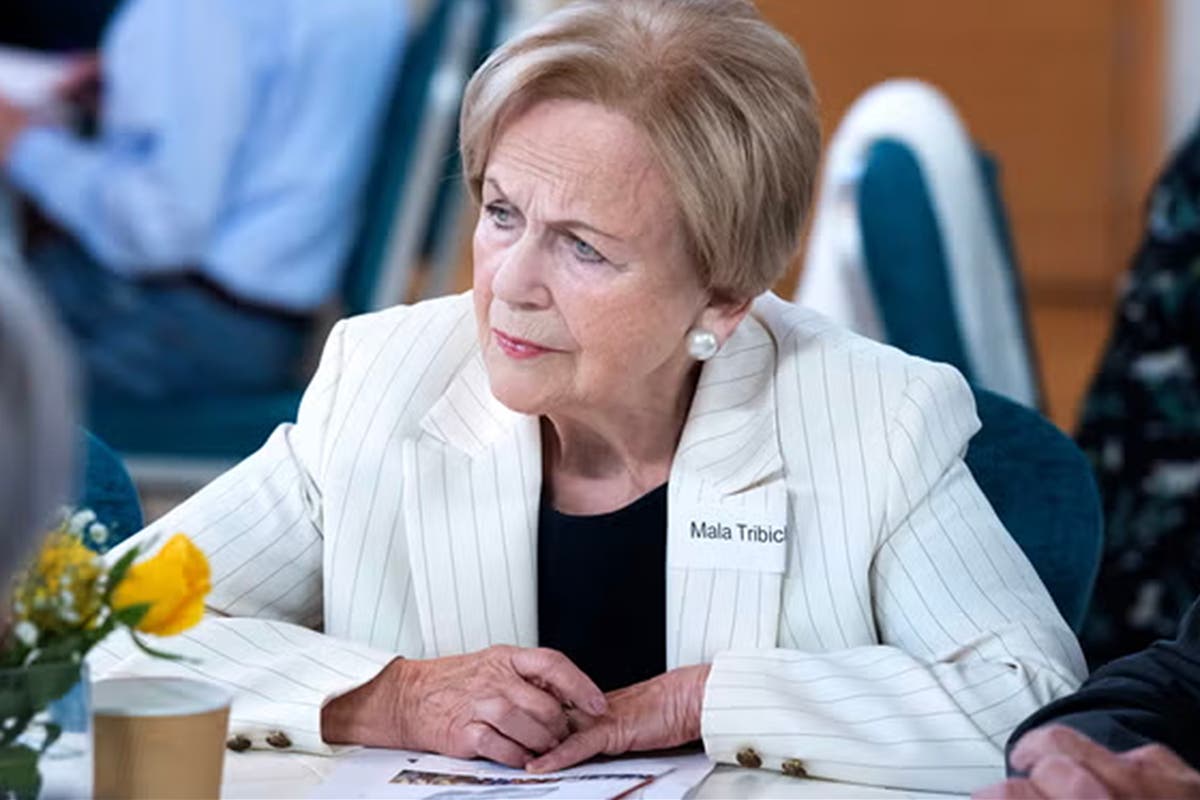
I still find it hard to believe that the Holocaust happened to us
Mala Tribich, who is attending the Holocaust Memorial Day service at Auschwitz-Birkenau alongside the King and Queen, was one of only two members of her family to survive the Nazi persecution of Jewish people. Here she writes of her pride in representing the six million people who were killed
In pictures: Auschwitz survivors and heads of state lay wreaths in tribute
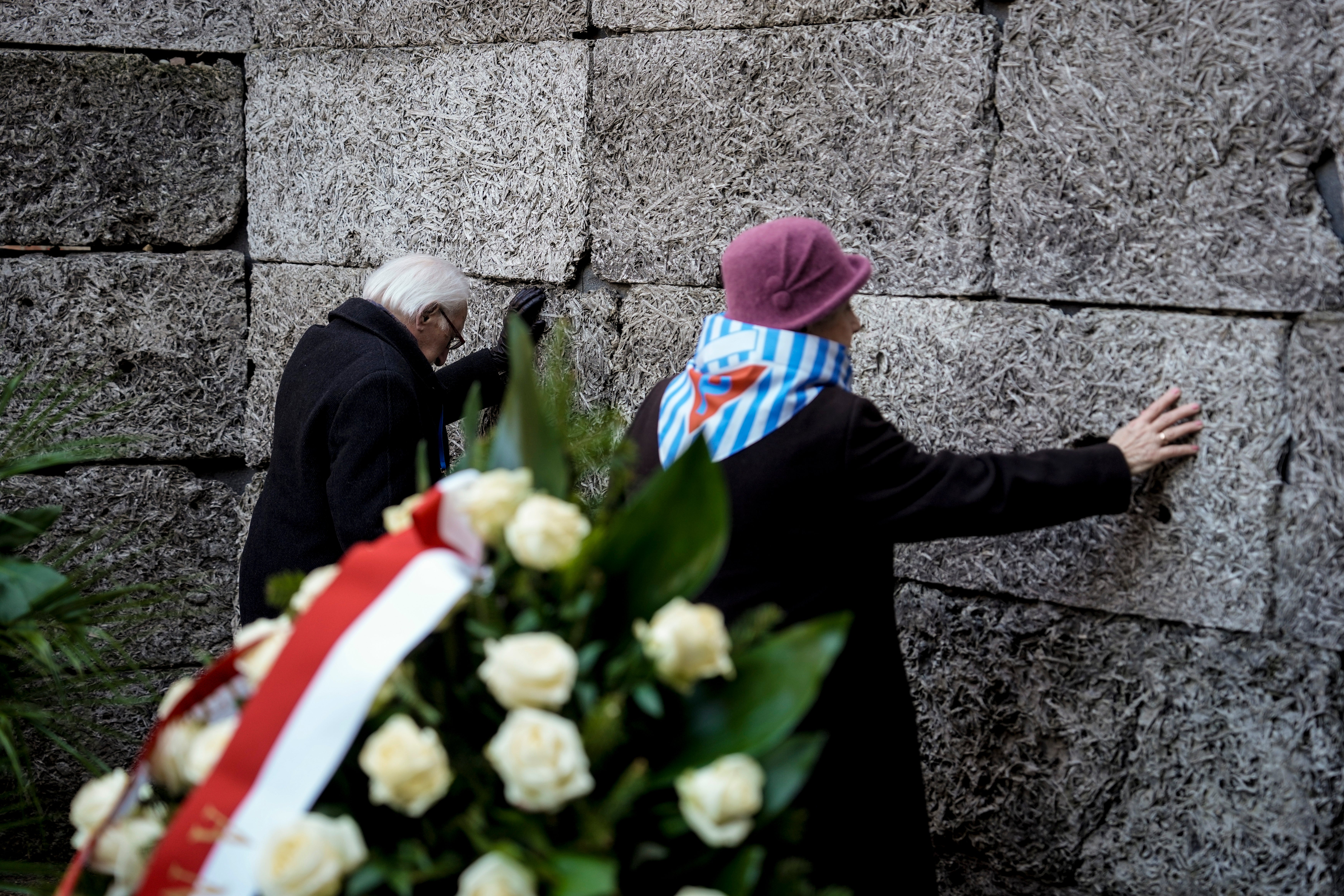
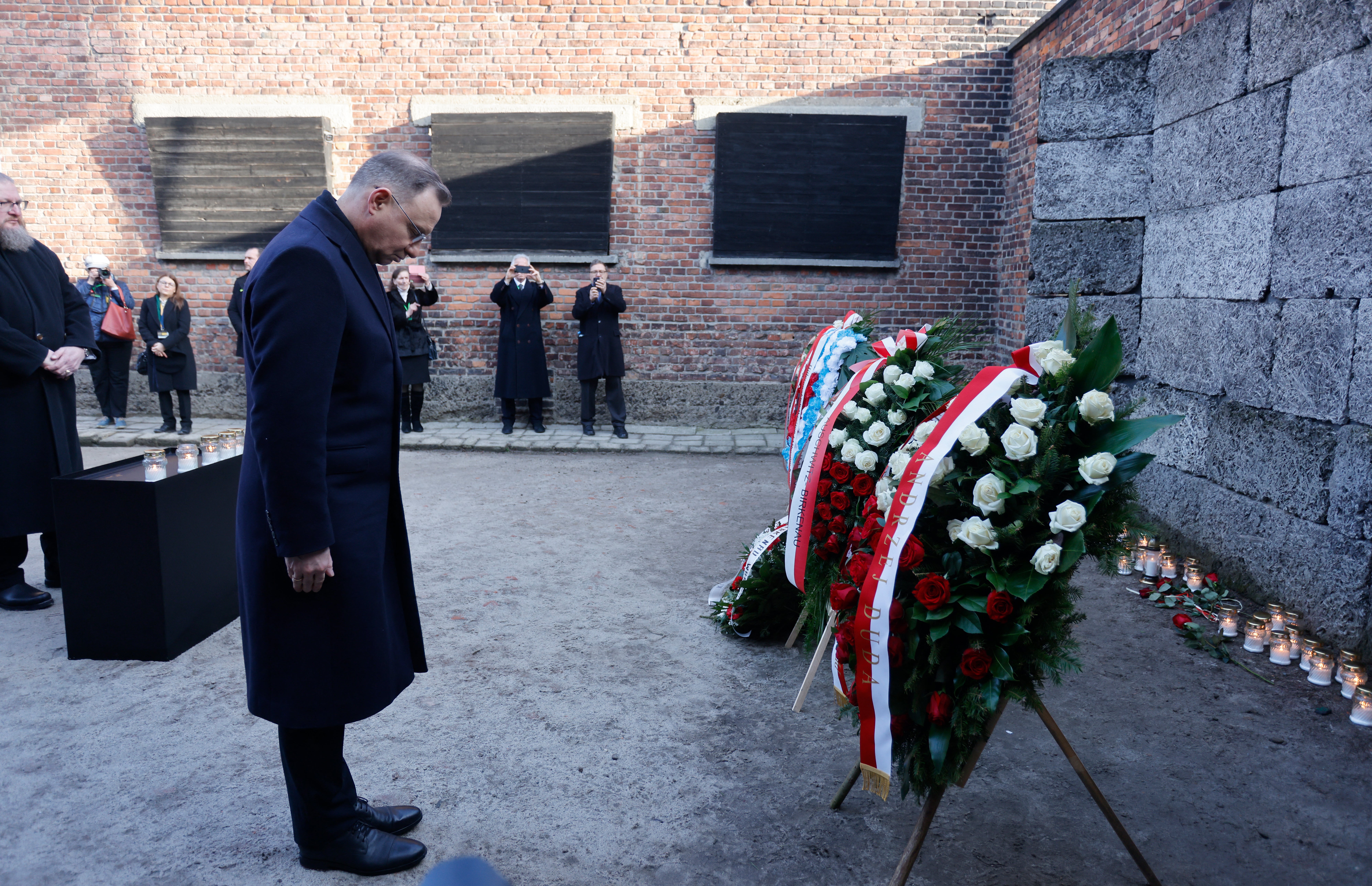
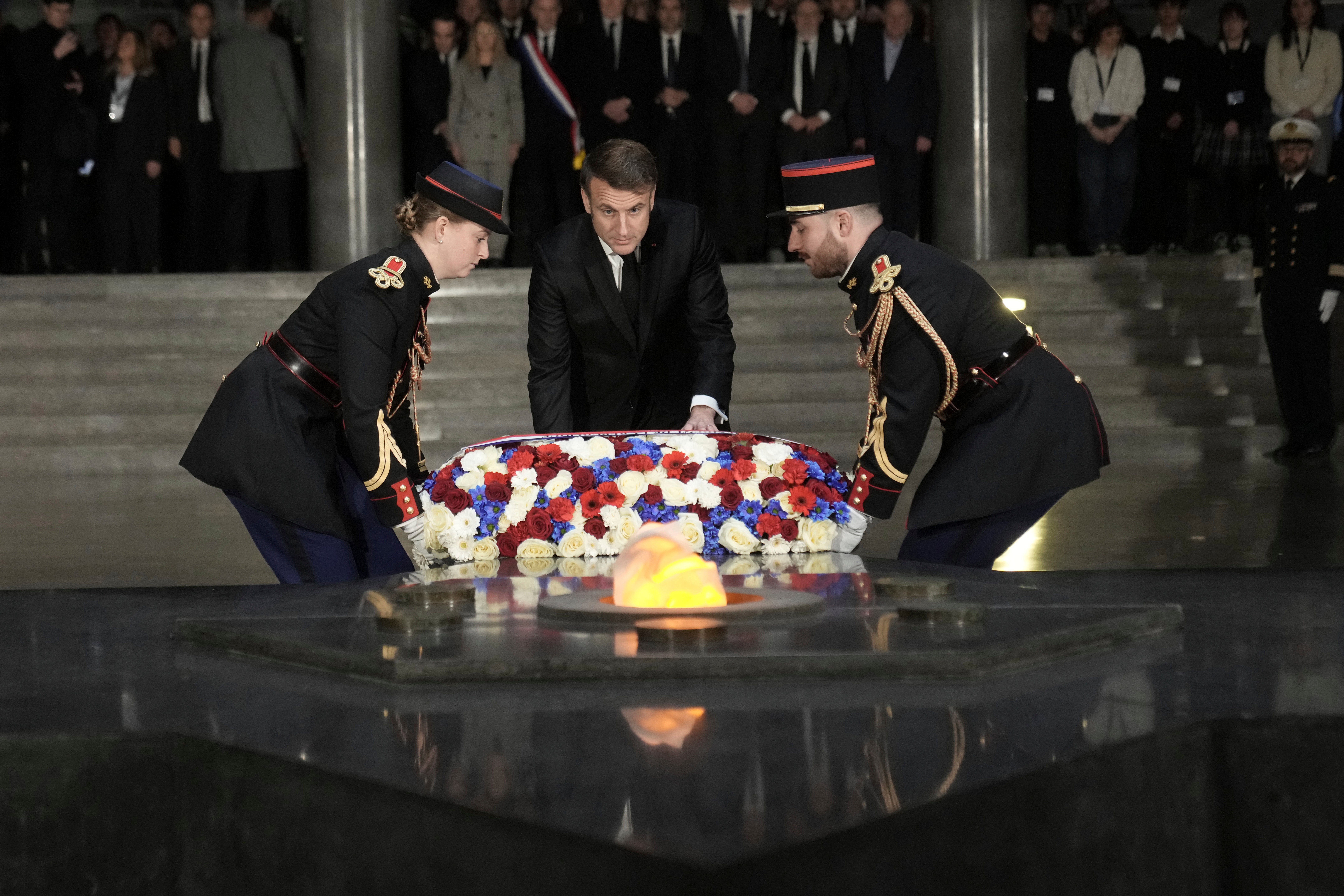
Watch live: Holocaust survivors return to Auschwitz on 80th anniversary of liberation
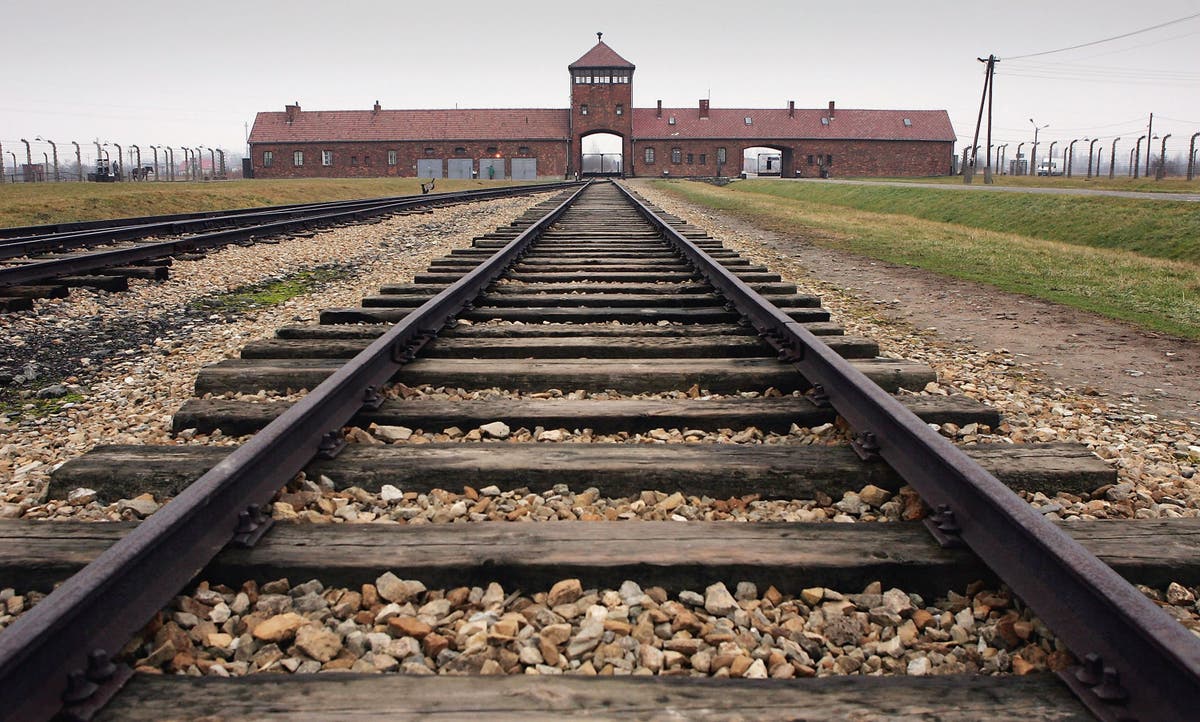
Watch live: Holocaust survivors return to Auschwitz on 80th anniversary of liberation
Watch live as Holocaust survivors return to Auschwitz in Poland on Monday, 27 January, marking 80 years since the concentration camp was liberated.
Outline of Charles’ day of commemoration at Auschwitz
The King will travel to Poland to commemorate the 80th anniversary of the liberation of Auschwitz-Birkenau today.
Charles has been invited to a service at the Auschwitz-Birkenau museum and memorial with foreign monarchs, presidents, prime ministers and Holocaust survivors .
The ceremony will be held in front of the infamous gates of the former Nazi concentration camp which had the words Arbeit Macht Frei – “work sets you free” – above it.
Auschwitz survivors will address the invited guests who are expected to include France’s President Emmanuel Macron, German Chancellor Olaf Scholz, King Willem-Alexander and Queen Maxima of the Netherlands and Spain’s King Philip VI and Queen Letizia.
Survivors will place a light in front of a freight train carriage – a symbol of the event – and the King with other heads of state and Government will lay lights in memory of those who died during the Holocaust.
After the ceremony Charles will walk through the gates to view personal items confiscated from victims when they entered the camp and lay a wreath at a reconstruction of the Death Wall, the site where several thousand people, mainly Polish political prisoners, were executed.
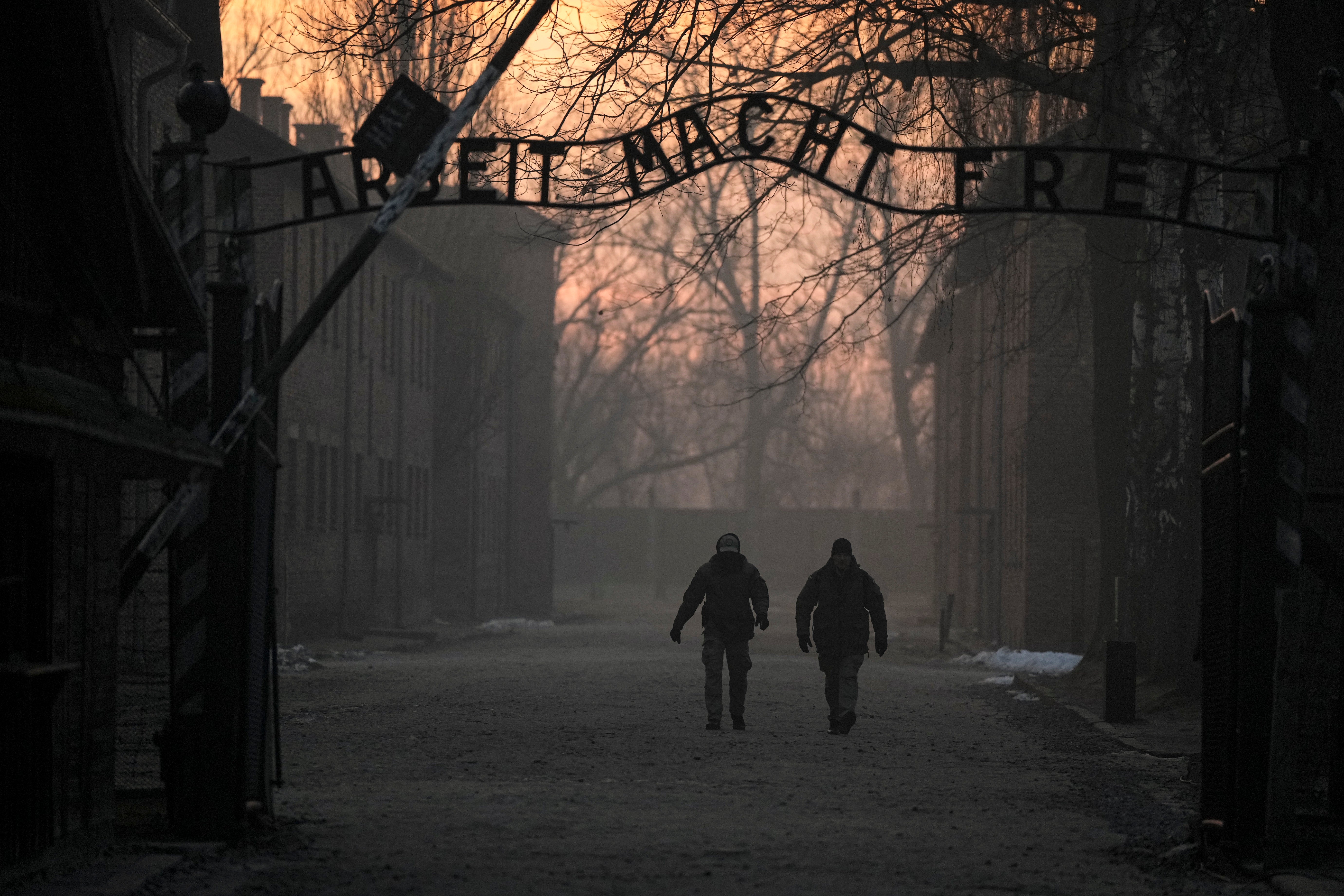
What does Holocaust Memorial Day commemorate and what is this year’s theme
Holocaust Memorial Day is a day for everyone to remember the millions of people lost in the Holocaust under Nazi Persecution.
More than a million people, mostly Jews but also Poles, Soviet prisoners of war and other nationalities, were murdered by the Nazis at Auschwitz-Birkenau during the Second World War as part of the Holocaust in which six million Jewish men, women and children were killed.
It is also a day to remember the genocides which followed in Cambodia, Rwanda, Bosnia, and Darfur.
This year’s theme is For a Better Future.
The Holocaust Memorial Day Trust details the 2025 theme: “This Holocaust Memorial Day (HMD) marks the 80th anniversary of the liberation of Auschwitz-Birkenau, the largest Nazi concentration camp complex, and the 30th anniversary of the genocide in Bosnia.
“80 years on from the liberation of Auschwitz-Birkenau, antisemitism (anti-Jewish hatred) has increased significantly in the UK and globally following the 7 October attacks in Israel by Hamas and the subsequent war in Gaza. Extremists are exploiting the situation to stir up anti-Muslim hatred in the UK. Many UK communities are feeling vulnerable, with hostility and suspicion of others rising. We hope that HMD 2025 can be an opportunity for people to come together, learn both from and about the past, and take actions to make a better future for all.
“There are many things we can all do to create a better future. We can speak up against Holocaust and genocide denial and distortion; we can challenge prejudice; we can encourage others to learn about the Holocaust and more recent genocides. There are some practical suggestions both at the end of this paper and here: Take Action for a Better Future.”
When was Auschwitz-Birkenau liberated and by who
Auschwitz-Birkenau was liberated by soldiers of the 60th Army of the First Ukrainian Front.
They opened the gates of the Nazi concentration camp on 27 January 1945.
More than a million Jews, Poles, Soviet prisoners of war and other nationalities murdered by Nazis at Auschwitz
More than a million people, mostly Jews but also Poles, Soviet prisoners of war and other nationalities, were murdered by the Nazis at Auschwitz-Birkenau during the Second World War.
The atrocities were committed as part of the Holocaust in which six million Jewish men, women and children were killed.
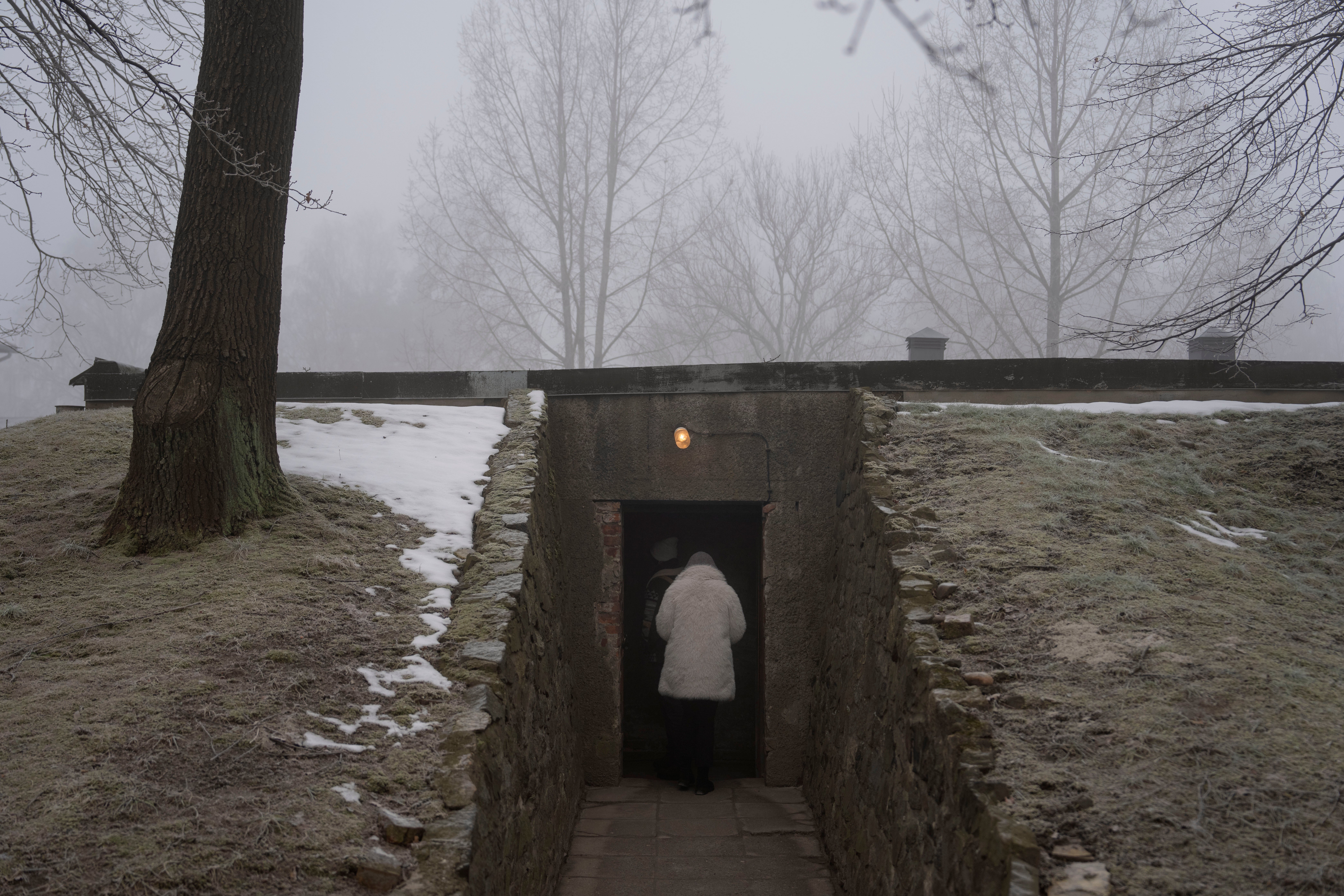
King to become first British head of state to visit Auschwitz
The King will become the first British head of state to visit Auschwitz-Birkenau when he tours the former Nazi concentration camp to mark the 80th anniversary of its liberation.
Charles will travel to Poland to commemorate the milestone with foreign monarchs, presidents, prime ministers and Holocaust survivors invited to a service at the Auschwitz-Birkenau museum and memorial.
During a recent Buckingham Palace reception ahead of Holocaust Memorial Day – held annually on January 27, the day Auschwitz was liberated – the King said: “I feel I must go for the 80th anniversary, (it’s) so important.”
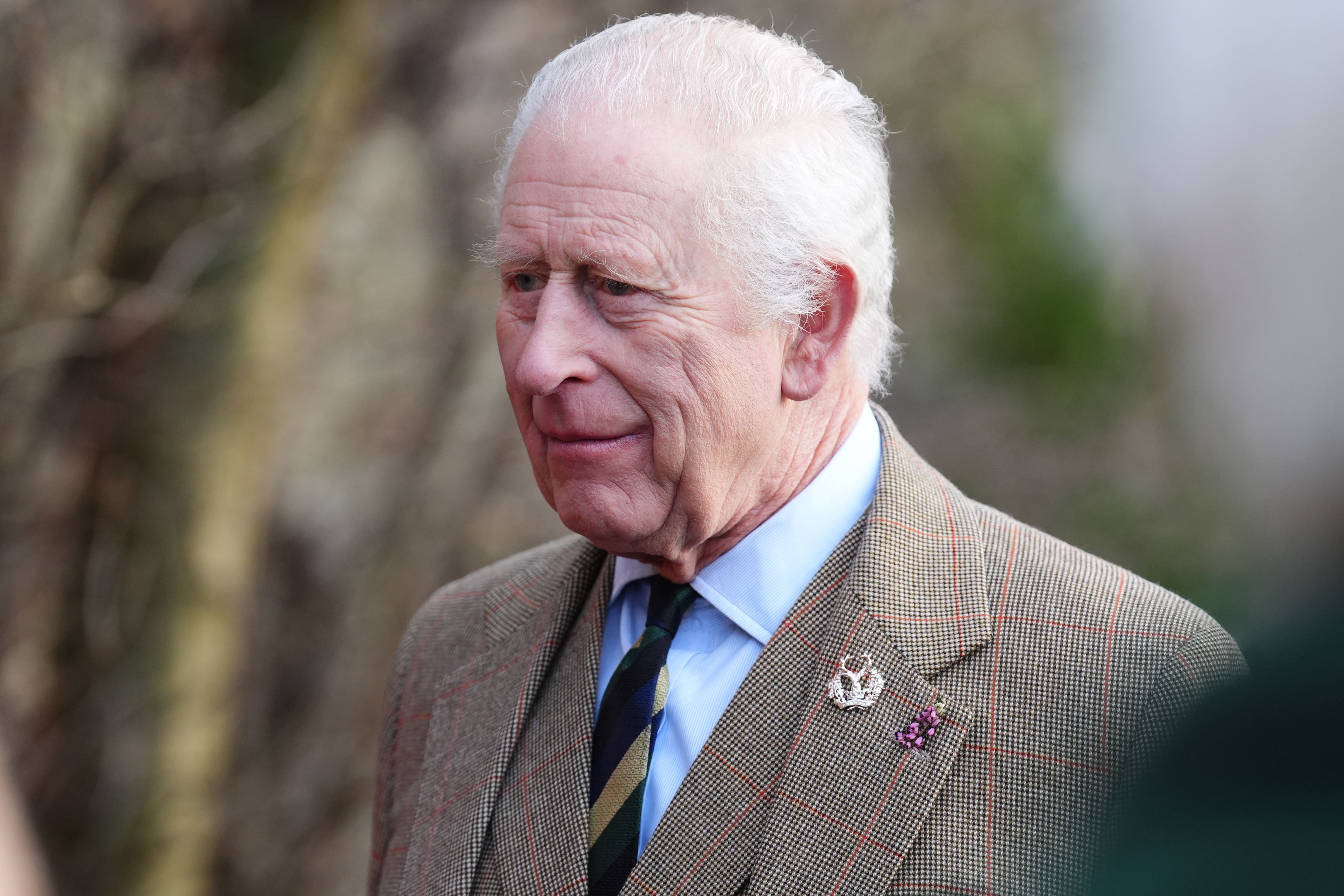







Join our commenting forum
Join thought-provoking conversations, follow other Independent readers and see their replies
Comments